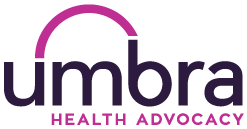My Sibling Has Disabilities, My Parents Have Died – Now What?

This is such a difficult scenario, yet it happens every day.
A child, perhaps mentally or physically disabled from birth, or one who might have suffered an accident earlier in life, grows into adulthood, having been cared for by very loving parents who did everything they could possibly do to care for their child.
As everyone grows older, eventually both parents die, leaving behind the child with disabilities, now an adult, who has outlived his or her parents. Maybe the parents have made arrangements for their adult child's care - or maybe they have not. Often, if arrangements were made, those arrangements involved a sibling's involvement. A brother or sister, who loves their sibling with disabilities, finds him/herself suddenly responsible in ways they never anticipated, no matter how well prepared they were by Mom or Dad.
They need help. Their challenges include fitting the many new tasks and responsibilities for their sibling into their own life routine. Will the sibling with disabilities move in with the abled one? How do the sibling with disability's needs fit into the routine of family life, especially when younger children, the nieces and nephews of the sibling with disabilities, are involved? Who attends doctor appointments? Or makes medical decisions? How does it all get paid for, especially if Mom and Dad didn't leave any money behind?
Compounding the challenges, it's not unusual for the sibling with disabilities to live in one location, while the new caregiver sibling lives out-of-state, hundreds - or thousands! - of miles away.
This is a relatively new situation. In the "old days" children born with disabilities didn't always live to be adults, or at least didn't outlive their parents. Decades ago, adult children hadn't moved to other locations. And of course, so often, children born with disabilities were put into "homes" - state institutions - and these questions and challenges didn't arise.
Fast forward to today, and this scenario is not at all unusual. Further, even if living, medical, and financial arrangements can be made, family circumstances change, laws change, insurance and other payment possibilities change.... It's tough enough managing for one's own core family, much less having to worry about a loved one with disabilities joining that family, no matter how much siblings love each other, how dedicated they are, or how thoroughly arrangements had been made by parents prior to their own deaths.
If this sounds at all familiar to you, you may be pleased to hear that there are people who can hold your hand through the process, and who can help you keep up with all those arrangements, and changes, and the monkey wrenches that can upset them... In particular, if your loved one with disabilities lives any distance away, it will be imperative you find a trustworthy professional to help you dodge the pitfalls and potholes you may encounter.
Private, independent health and patient advocates, and care managers to the rescue! Find them here: https://app.umbrahealthadvocacy.com/search/
These professionals know the ins-and-outs of the systems you will need to tap into to get the help you and your loved one need. Whether it's financial guidance, medical care, living arrangements, adapting your environment - advocates and care managers know the resources to help you get the assistance you need.

The lives of adults with disabilities have changed dramatically when you consider how their lives have been extended, and the quality care they deserve is provided to them.
Let health and patient advocates and care managers support you by helping you determine the right answers for your family's situation.
- Services Provided by Health / Patient Advocates and Care Managers
- How to Interview and Hire an Advocate
Find a Health / Patient Advocate or Navigator
Learn more about The Alliance of Professional Health Advocates
